From Sunrise To Sunset – Antonio M. Rosario’s Kensington
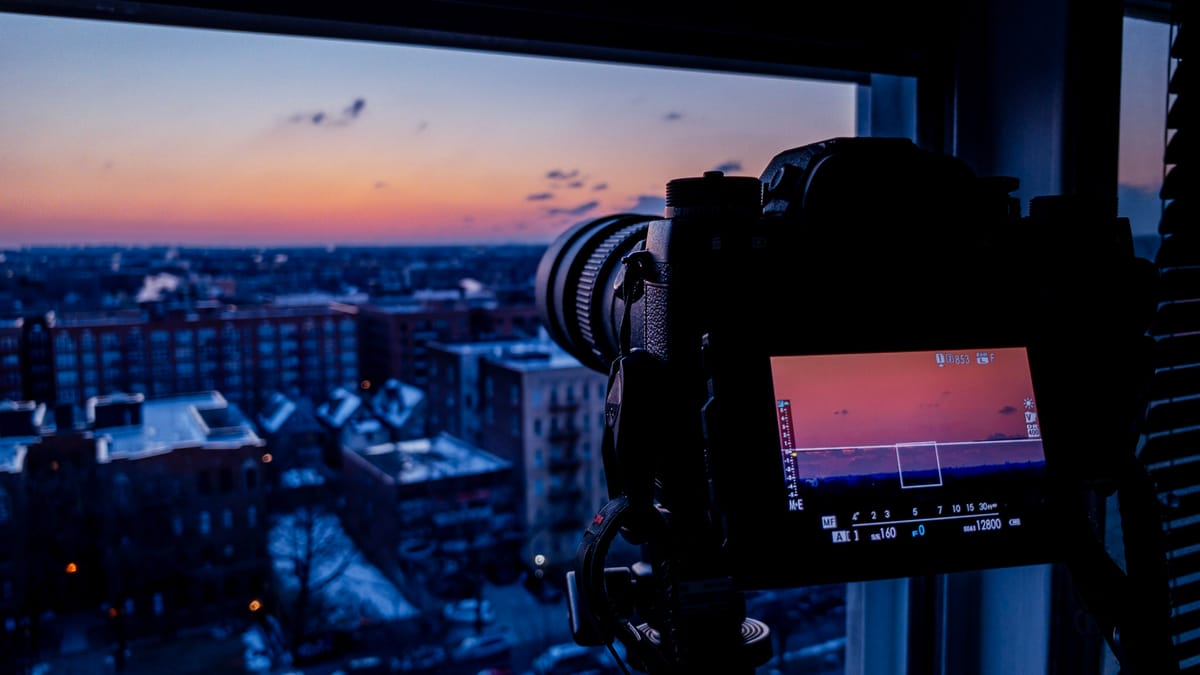

KENSINGTON – Antonio M. Rosario is a man of routines. Every morning he wakes up at 6:00 am and captures the sun rising above Brooklyn outside his office window. From the top floor of the white Trump apartment building on Ocean Parkway, his views are expansive. At 6:15 am he does his morning exercises, and by 7 am, you can find him perched at one of the stools by the window at Qathra on Cortelyou Road. His view is documented.
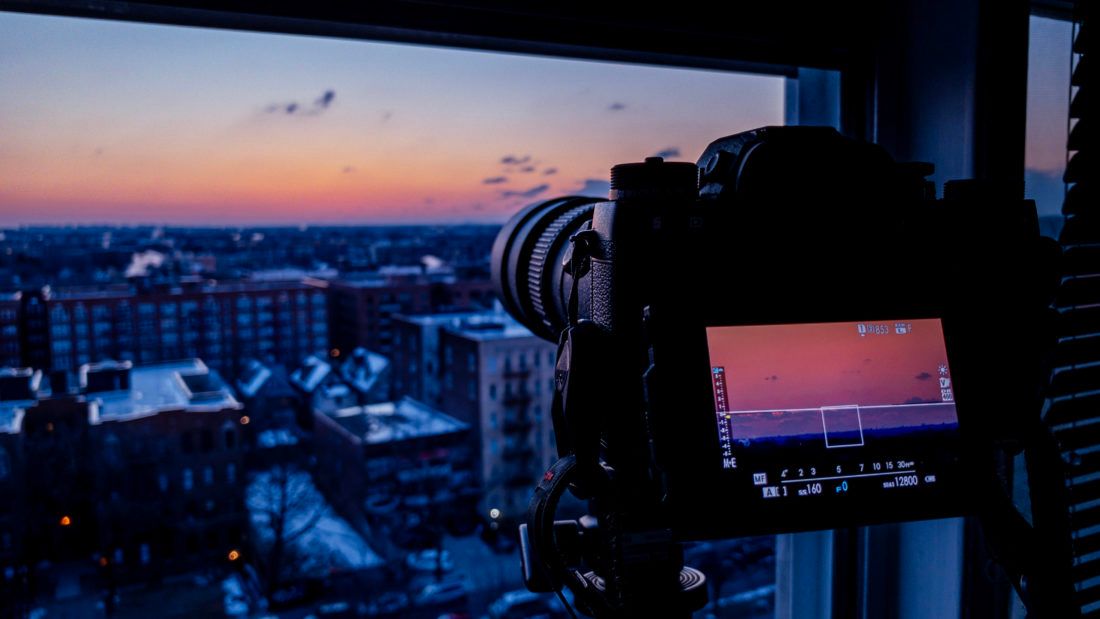
Rosario, a professional photographer, grew up on the Lower East side and moved to the neighborhood 10 years ago from Park Slope. He works part-time for BRIC in Fort Greene and edits videos the rest of the day when he’s not teaching a street photography class or snapping images himself. He’s been posting them for a few years now on local Facebook pages. We met at 7:30 am at Qathra to talk about sunrises, street photography, and a way of seeing. The sunrise was at 6:12 am that morning.
The following is our conversation, lightly edited for length and clarity.
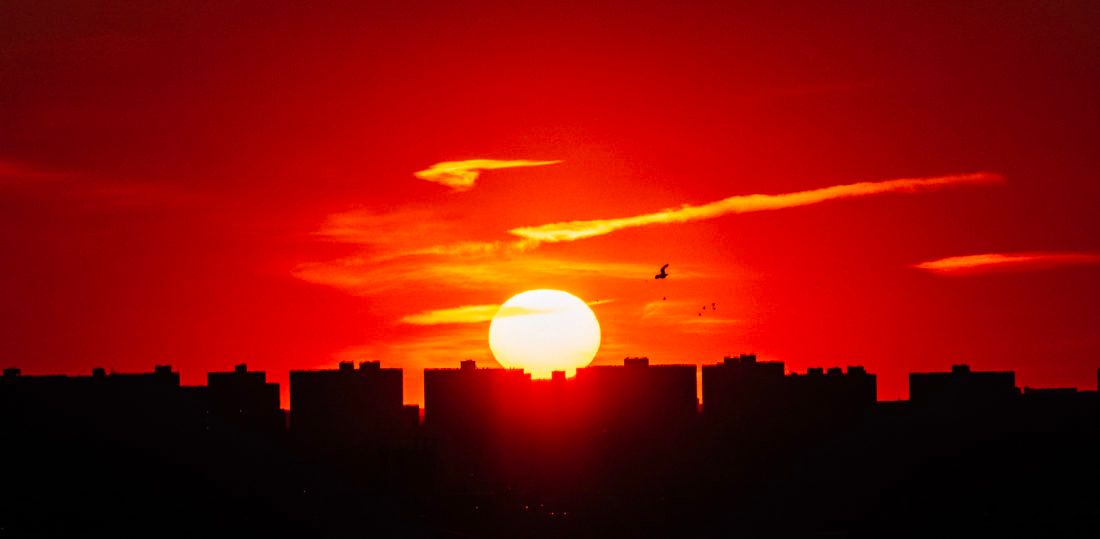
How many sunrises have you documented?
Oh, I don’t know, it’s been ten years! But it’s a three-seasons thing – I’m not really willing to get up before 6 am in the summer. I like it in the winter a lot more, just because the roofs have steam coming up, the air is a little crisper. In the summer there is often a haze in the mornings, with the humidity rising – makes for good sunsets, but not sunrises. My old apartment in Park Slope faced west, so I did a lot of sunsets. I got really sick of sunsets.
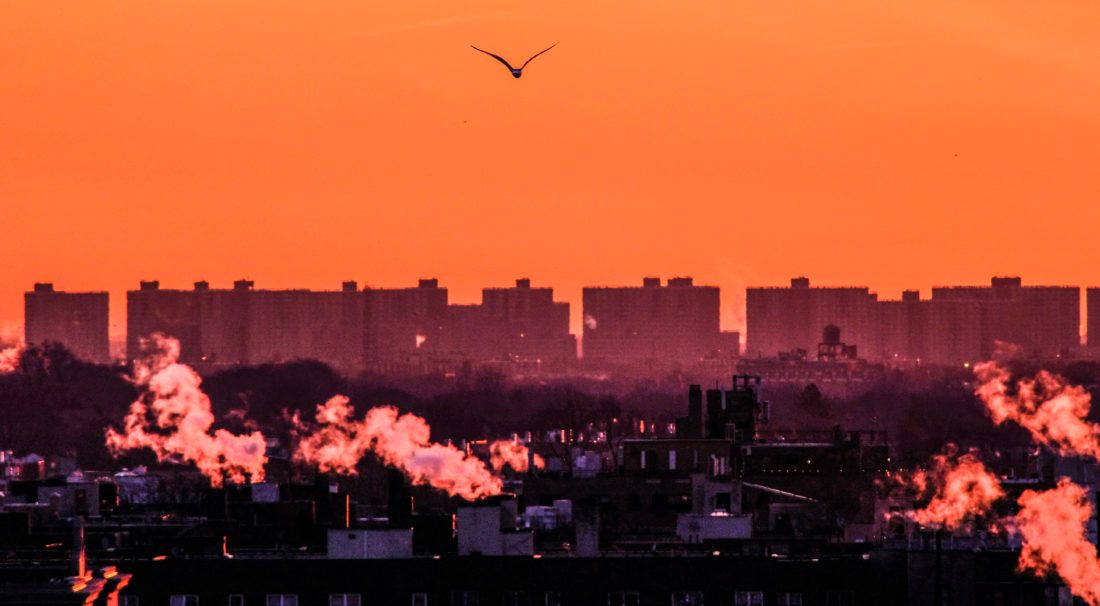
You were nominated for a profile by a neighbor who wished to know more about the man behind the frequent posts in the Kensington Facebook Group.
I like to show the world how I see it. Sharing street photography on the Facebook group, however, is something else. I will not do that again, because of the discussions that happen and the trolling. The last one I posted was of a guy delivering halal meat to a shop on McDonald and Church. He had a lamb or whatever in the shopping cart, feet sticking up. It went crazy [on Facebook] – from “Great shot” to “Look how dirty it is!”, “I’d never eat there!,” “How dare you take the picture!”. I ended up deleting the post and not sharing [street photography] again.
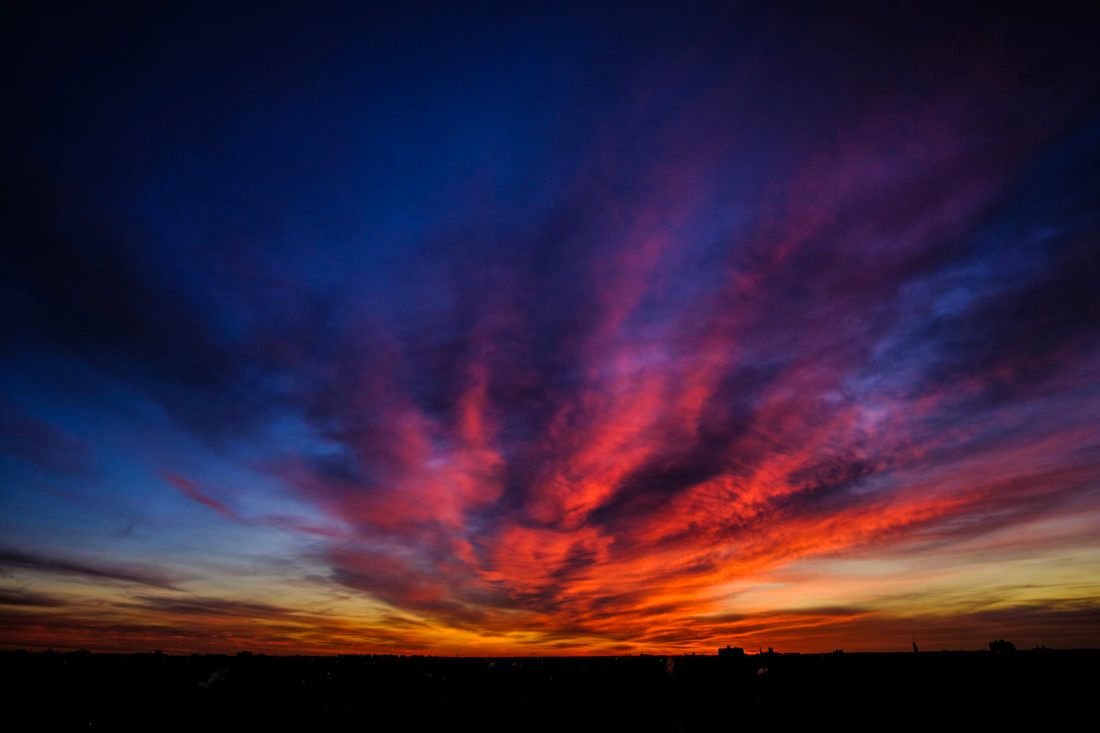
But then I started posting sunrises. I live in the neighborhood, this is what our world looks like, and it has been a lot more positive. The sunrises are a shared experience, a shared way of seeing, if only for those 7 minutes.
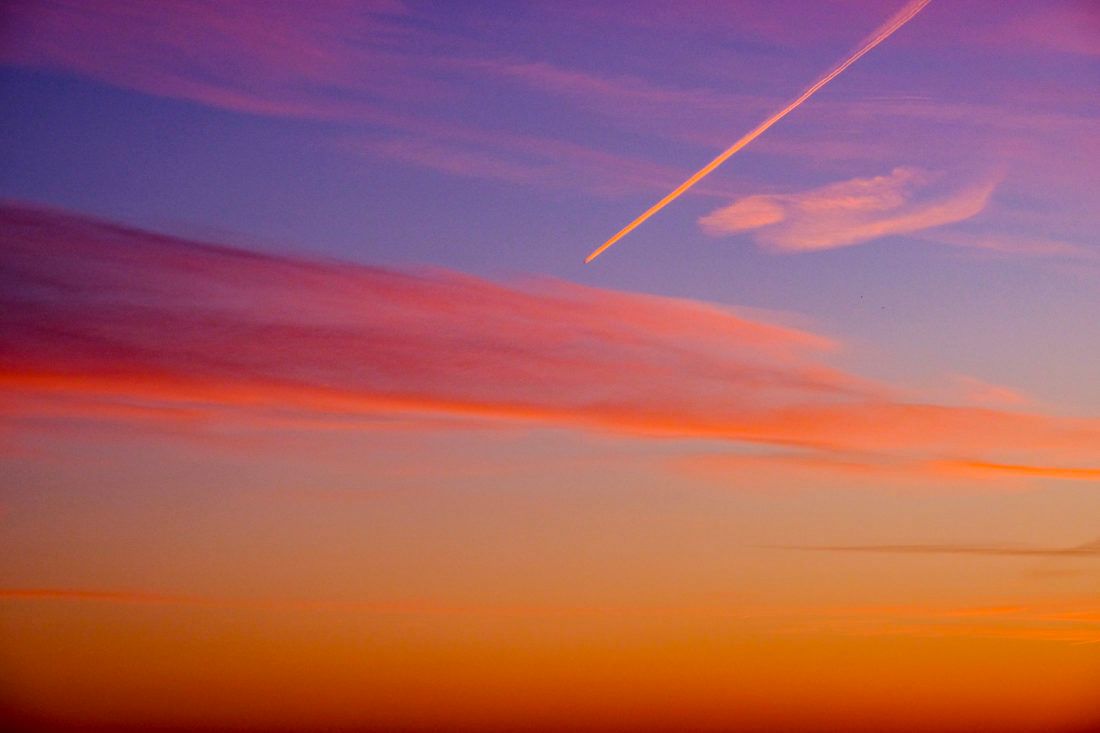
Street photography is more individual, way more personal way of seeing, stopping time and really seeing the moment. So I post sunrises on Facebook, and Instagram is only street photography.
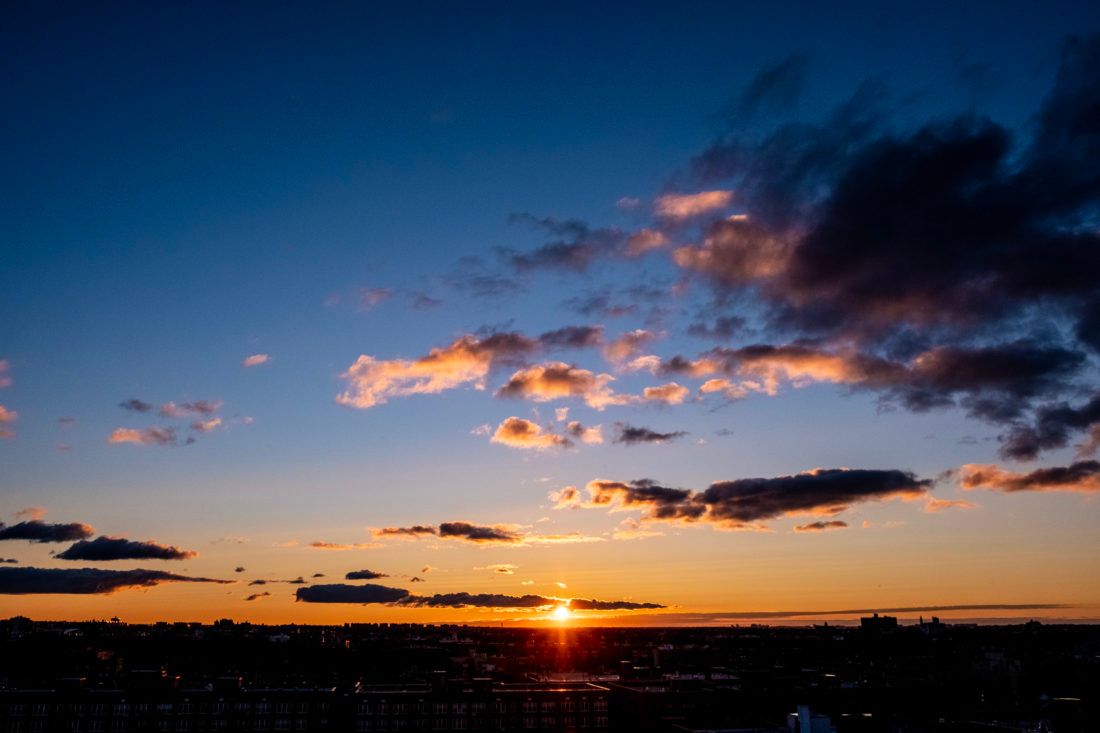
You tend to take pictures of older people. Why?
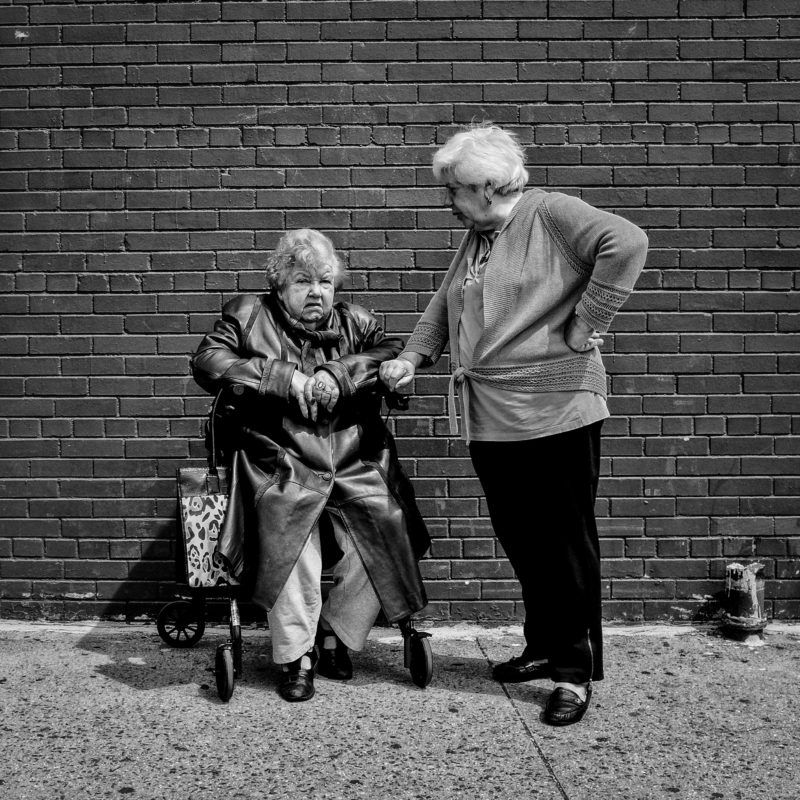
I’m older? I look for character in faces, a character in the body. As you get older, that stuff accumulates. Occasionally I get shots of other people, but I’m more interested in life experience. But I had not noticed that; interesting.
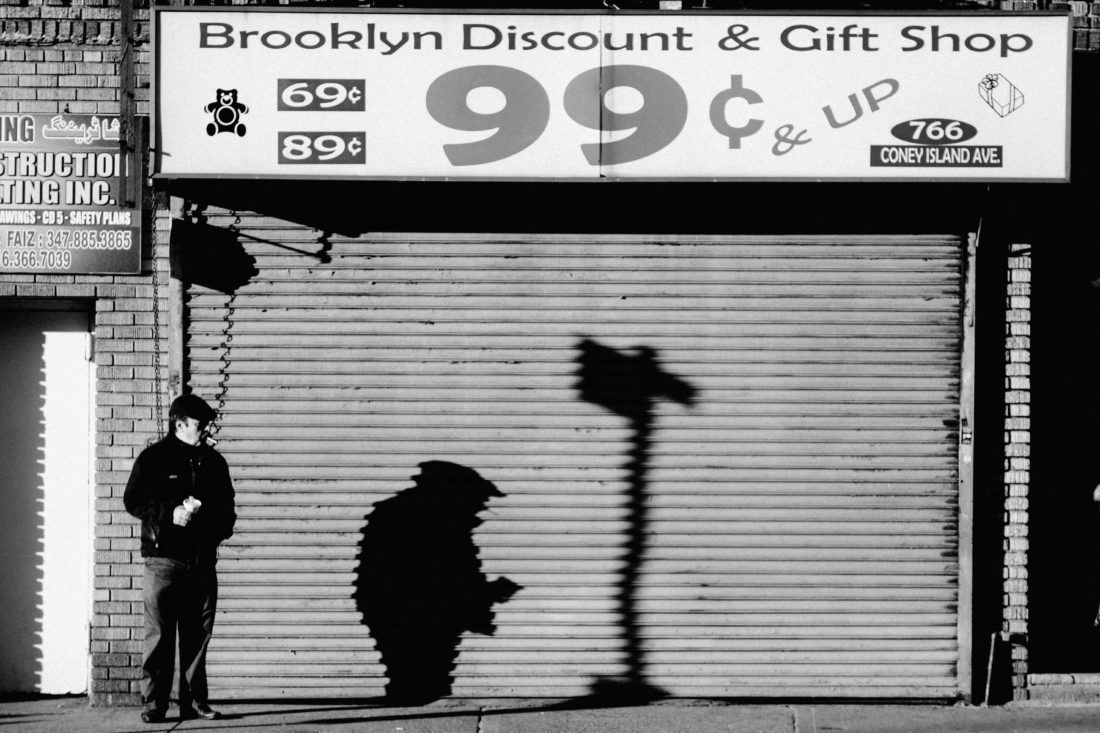
Some of it may be due to my routine. I walk the same streets pretty much at the same time each day, and it tends to be during the day so that’s when you do get older people out and about. I shoot when I go to work. It used to be I worked 9-12 at BRIC, it was the route to subway. Avenue C to East 5th, up to Church, to Mc Donald to G. If I walk to Cortelyou I also get Coney and Cortelyou.
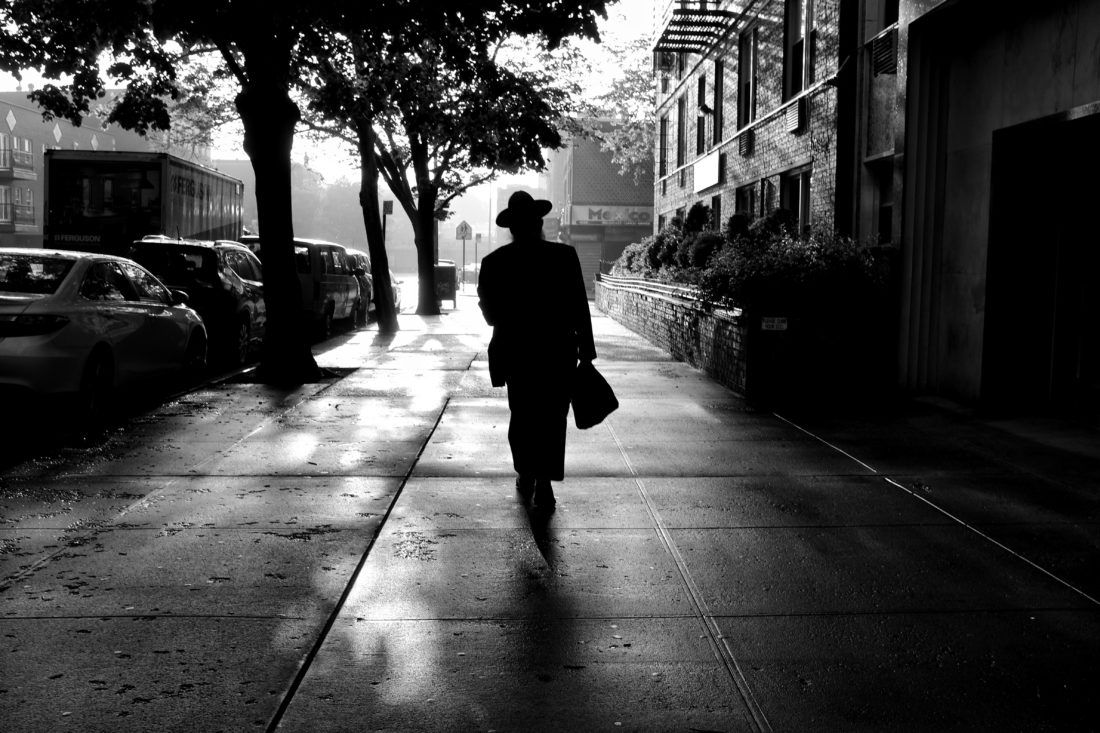
Documenting neighbors
I started by documenting people sitting on the benches along Ocean Parkway. This feels like where I grew up – not exactly, but there is a feeling I wanted to capture. Old people sitting on benches. They are also easy to photograph – they are not moving, as I am always in motion.
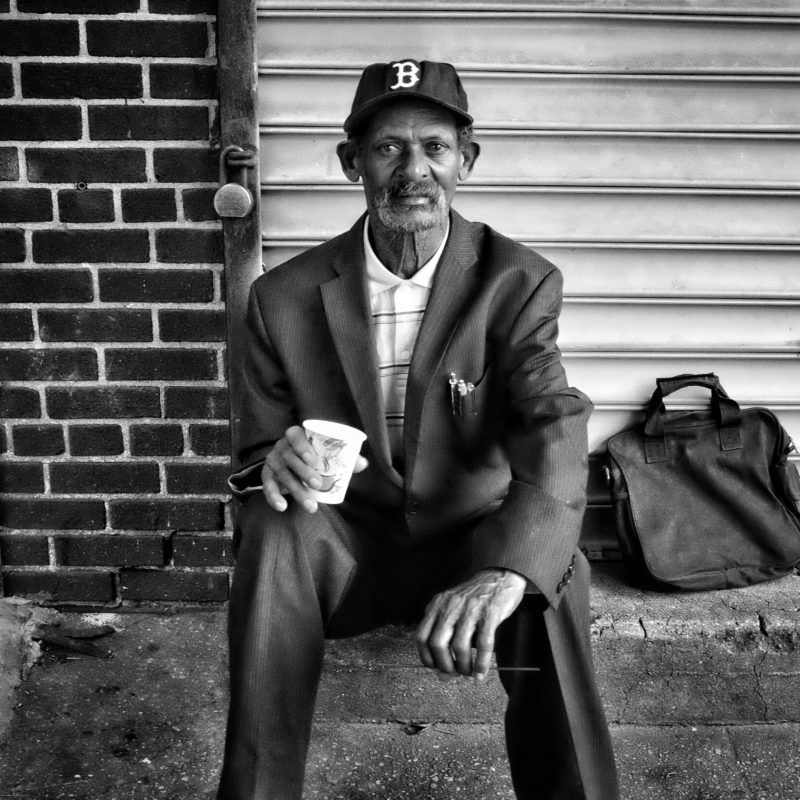
You walk by and you see people playing checkers. You take the shot and you capture an interaction, a brief second you did not register, but your camera did. The camera stops the time we pass through. I always tell people to slow down. The camera helps you see.
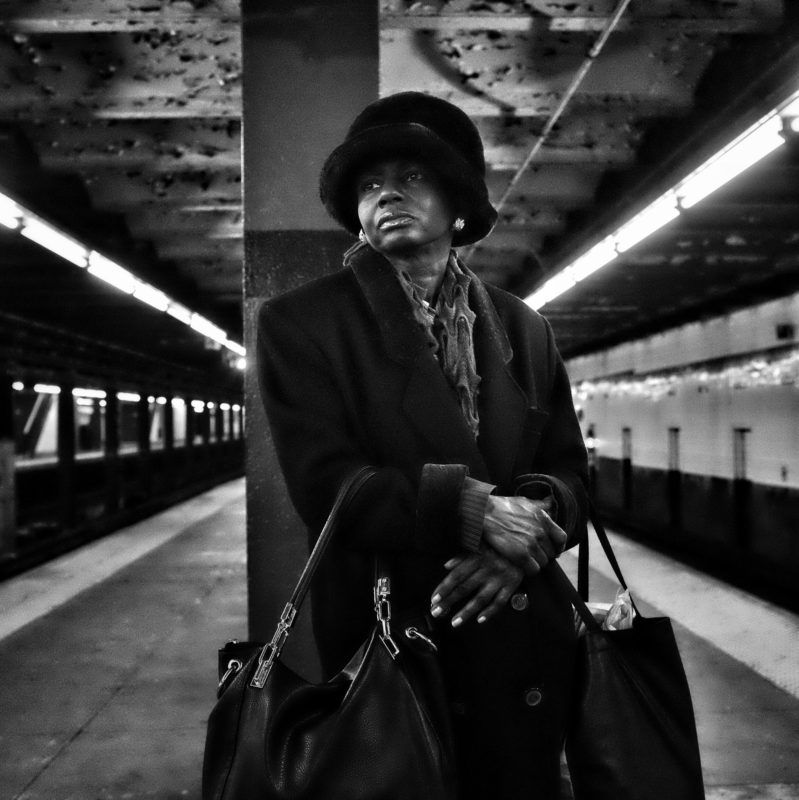
I think it was Garry Winogrand who said: “I use the camera to see what something looks like when I photograph it.” You get someone yawning on the train and they look like an opera singer. The camera can show us stuff the eye cannot see. People always do something new.

There is a difference in an older person’s way of being, they don’t care as much about the way they look, they just go out and exist. I walk and take pictures, then look for struggle, anything new about the human condition. Once in a while, there is something, can be a subtle gesture that is a challenge. Maybe that is what I see more in older people – the struggle to walk and be in the city.
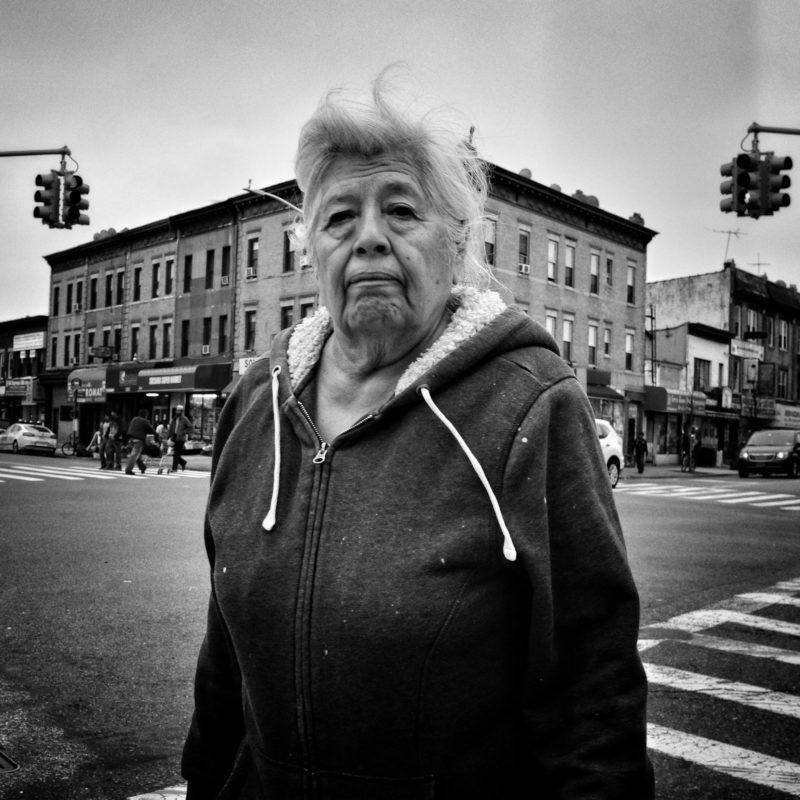
My photography is not there to represent reality, it’s my representation of how I see reality. I love saturated colors, that is how I see the sunrises. My choice is to express myself with my camera.
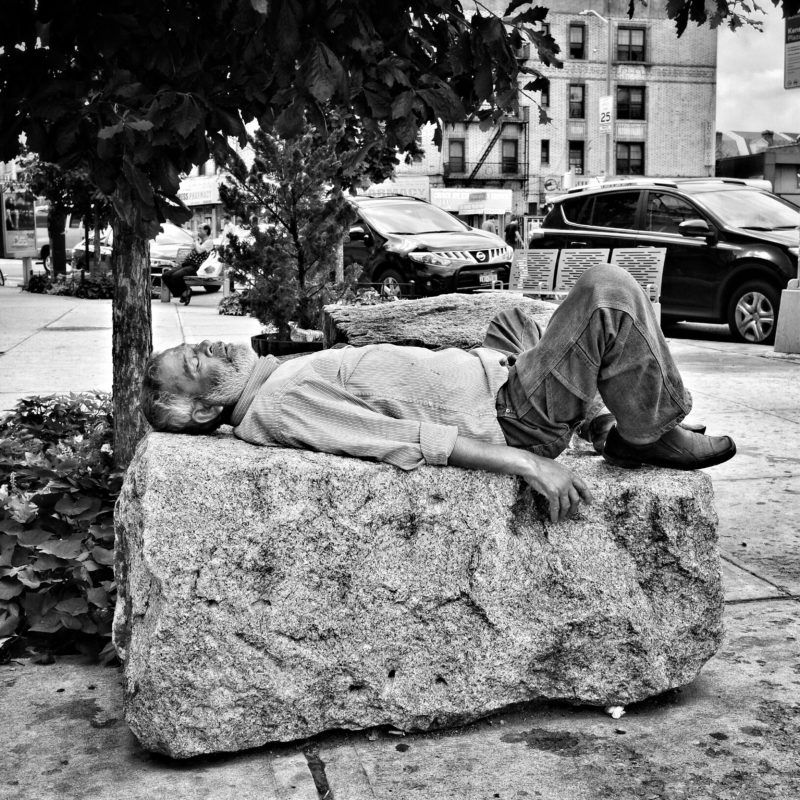
I’m very conscious of how I shoot my subjects. I try not to shoot embarrassing situations or, like, what might be private. But people do things in public that are kind of off the wall. If you are sitting in front of a store with your shirt off and you are not in great shape, you are kind of presenting yourself that way to the world and I might take a picture.
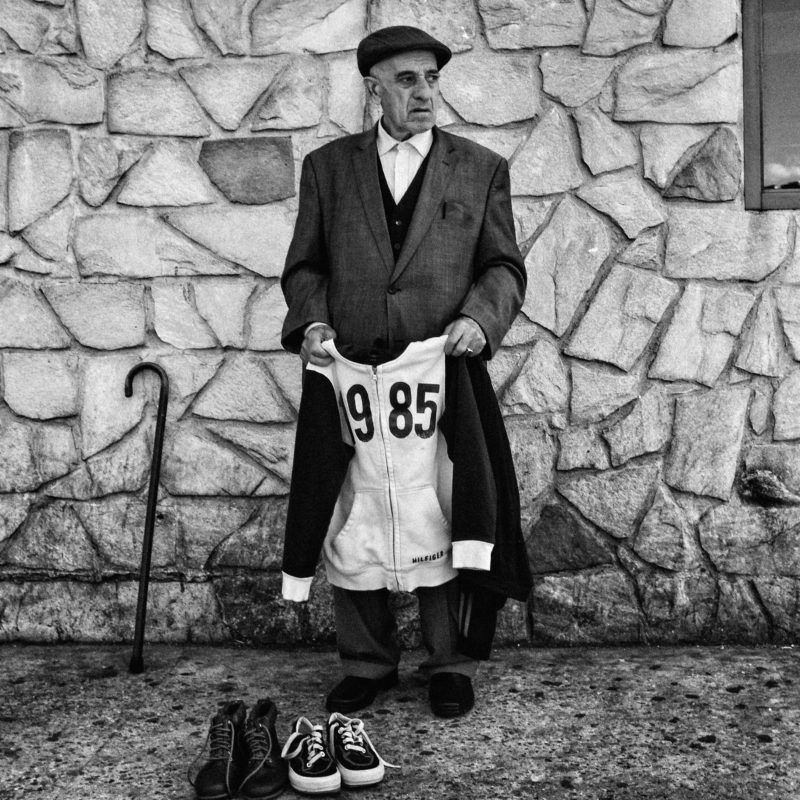
How does your way of seeing evolve?
I let my camera lead. Sometimes you get to shoot the same person a few times, especially when you happen to have the same routines, and you discover different things. It all starts with curiosity. My commercial photos were still life or travel, not people. But here, in the neighborhood, here you cannot avoid people.
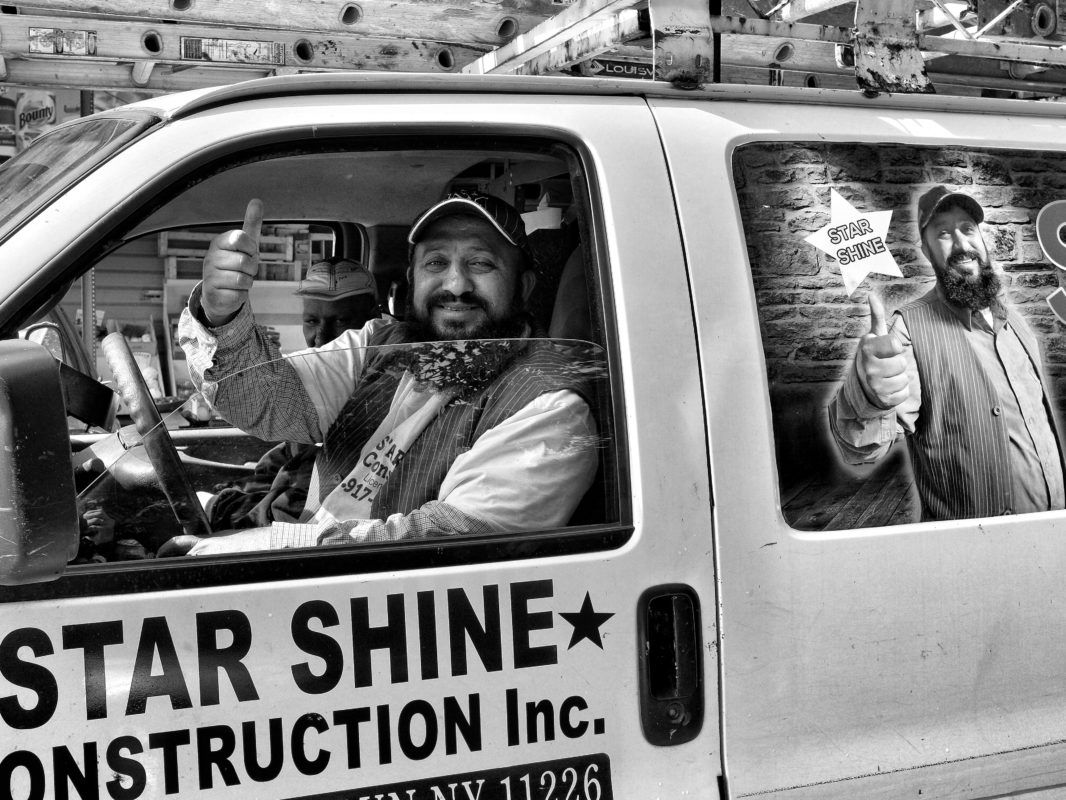
There’s a woman I have taken a lot of pictures of. I don’t know her situation, she seems a little rough around the edges, life all over her face. I sometimes wonder if there is anyone taking pictures of her in her life, other than me. And I have this whole collection. People, in general, do not like photos taken, so most I take are stealth. When you ask for permission, the moment is usually lost, their expressions change – I prefer to be the fly on the wall.
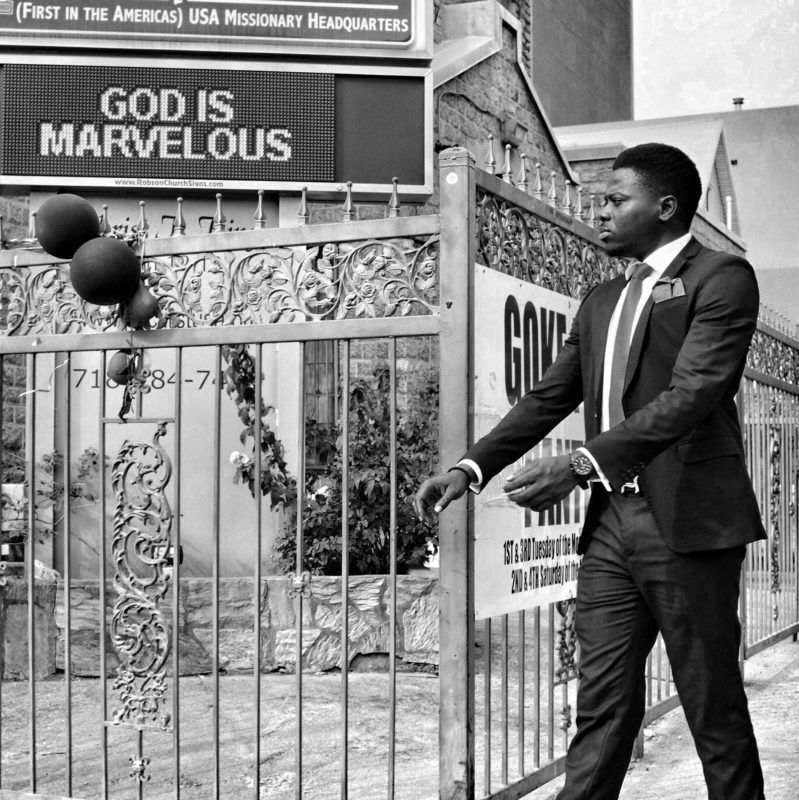
I don’t take pictures of people I know, I see them very differently. I may have taken photos of strangers I have come to know later, but they were strangers back then.

It is also changing as I get older. We are all having the same experience living, dealing with the s**t we have to deal with. Shooting things was not satisfying for me. I had no connection with say a plate I had to photograph. I can relate to people sitting on benches, being hot and sweating in the street.
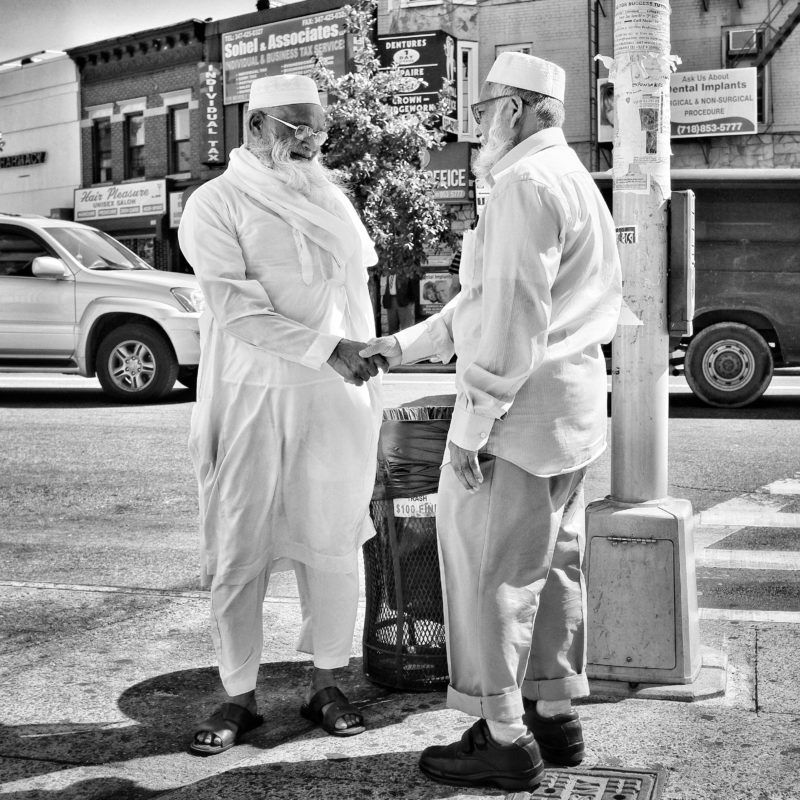
When people see my photos they see my way of seeing. When I hear them say – “Look at these people!” – I think – “If only you looked up, you’d see them too!”
You can find more of his work here:
- www.amrosario.com
- www.instagram.com/arosario
- www.flickr.com/amrosario
- https://antonio.darkroom.tech/
A.M. Rosario was nominated for a profile by Julian Vinocur. If you know of a person we should profile, please get in touch by emailing editor@bklyner.com or via our social media channels @bklyner.




